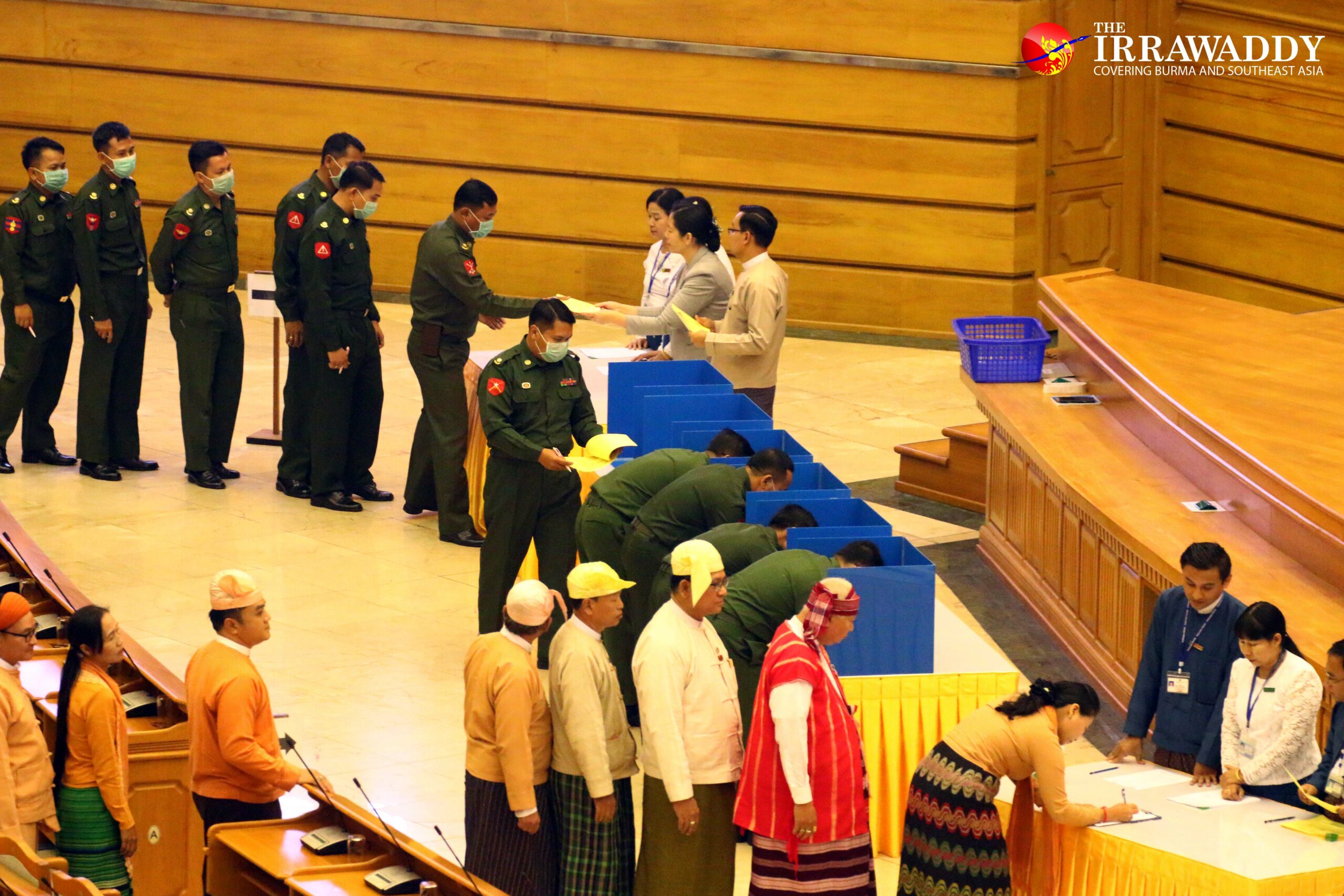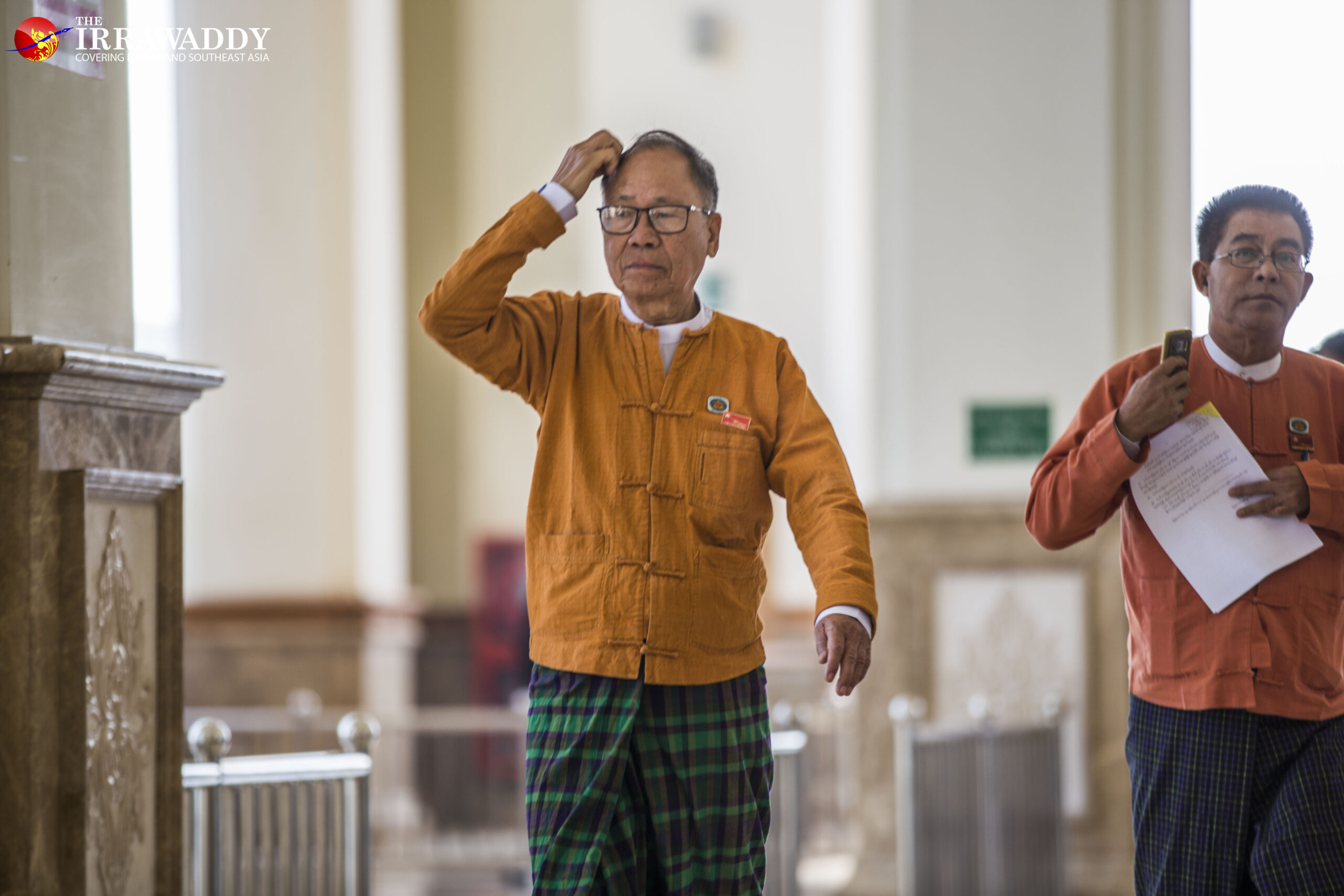Democracy still cannot win in Myanmar.
The country’s de facto leader Daw Aung San Suu Kyi and her ruling party, having come to power through democratic means in the 2015 general election, have discovered they are powerless when it comes to amending Myanmar’s most fundamentally important law, the Constitution.
In nine days of balloting between March 10 and 20, Myanmar’s bicameral legislature, the Union Parliament, voted on amendments to the military-drafted Constitution. No politically important provisions were changed to bring them in line with democratic principles.
The reason? The unelected military representatives in Parliament loyally safeguarded it.
The ruling National League for Democracy’s bid to amend the Constitution, launched in January 2019 with the formation of the parliamentary Charter Amendment Committee, has been in vain. The committee comprised a number of its own lawmakers along with MPs from ethnic parties and military representatives. The NLD contributed proposals to amend 114 of the Constitution’s 457 articles.
Its primary objective was to reduce the power that the charter grants to the military in the legislative, executive and judicial branches of government.

Consider the three articles below as examples of how the proposed amendments failed—and mind the vote figures:
- Article 14 – The NLD sought to amend the law in order to gradually reduce the military’s share of seats from 25 percent to 15 percent after the 2020 election, 10 percent after 2025 and 5 percent after 2030. The proposal received the support of 62 percent of lawmakers, with about 32 percent voting against it.
- Article 59(f) – The NLD sought to scrap this infamous law, which bars a person from becoming president if their spouse, either of their parents, any of their children or their children’s spouses are citizens of a foreign country. The article is believed to target Daw Aung San Suu Kyi, whose children are British, as was her late husband. The proposal received support from over 60 percent of lawmakers, with 37 percent voting against it.
- Article 412(a) – The NLD sought to amend this law, which grants sovereign power to the commander-in-chief of the military in emergencies, including the rights to exercise the powers of the three branches of government. The proposal received support from 63 percent of lawmakers, with 33.5 percent voting against it.
No doubt you’ve noticed that the proposals all received more than 50 percent of votes, but were not approved, as most parliamentary bills would be. This is due to two key provisions in the Constitution: Article 436(a) and (b), which grant military representatives an effective veto over such proposals. Thus, the NLD tried to amend that article too. See the result below:
- Article 436(a), (b) – The NLD sought to amend this law, as it grants the military representatives absolute power of veto over any changes to the Constitution. The article requires that charter amendments receive the approval of more than 75 percent of lawmakers in Parliament—25 percent of whose seats are occupied by members of the military, appointed by the commander-in-chief. The NLD proposed to change this from “more than 75 percent of all representatives” to “more than two-thirds of elected representatives,” which excludes the unelected military appointees.
Over 63 percent of lawmakers voted in favor of the proposal and 32.3 percent voted against it. But like the articles above, it was not approved, as the proposal didn’t receive more than 75 percent support.
Of the NLD’s 114 proposals, 110 received support from over 60 percent of lawmakers during the parliamentary vote over the past nine days. If you do the math, excluding the military appointees, each of the proposals received support from more than 80 percent of the elected representatives.
Well, the former military leaders who drafted the Constitution and the current military leaders who loyally safeguard it know this better than anyone.
The voting ended on Friday. When all was said and done, only four proposals received support from more than 75 percent of lawmakers, so they are to be amended in accordance with Article 436. But let’s see how insignificant they are.
Three of them call for changes to the use of the Burmese-language words for “disabled” and “elders”, while another would remove a passage, deemed unnecessary, which states that a regional or state minister can be appointed from among elected representatives or from among those who are not elected representatives—meaning a minister doesn’t need to be either to qualify.
So, if you were to ask me what the charter reform effort had achieved by the time voting closed on Friday, I would have to say “almost nothing.” Only this—now we understand that overwhelming popular support is little more than symbolic.
Simply put, the NLD was defeated by the military representatives in Parliament. More accurately, the party was defeated by the commander-in-chief of the military, who appointed the military representatives and gave them their orders.
All of which means that military chief Senior General Min Aung Hlaing has much more power than State Counselor Daw Aung San Suu Kyi and her ruling party in this specific area.
So, is the effort over? Yes, for the time being. For now, the mission cannot be accomplished.
Is there a Plan B for the NLD and its allies? Unlikely at the moment. So, what are their options?

Many NLD and ethnic party leaders, including Daw Aung San Suu Kyi, might just be hoping that a moderate general will replace Snr-Gen Min Aung Hlaing when his current tenure ends. But nobody knows exactly when that will be. He will turn 65 in mid-2021, a few months after the new government is sworn in after the upcoming elections this year.
The NLD and its leadership expect to win the election and form the next government. They may be hoping that the next military chief will be a moderate who will give them the green light for another attempt at charter change
Who knows? Something unexpected may occur. Then what? Nobody seems to have a clear answer.
Earlier this month, I went to Naypyitaw to observe the heated parliamentary sessions and interview members of Parliament and other officials. Among the conversations I had there, one in particular lingers in my memory. Sai Tun Aye, an ethnic Shan MP, said to me: “… the Constitution is impossible to change; I don’t think it could happen even if Indra [the King of Heaven] came down to amend it.”
Well… at least not until the commander-in-chief changes his mind or we get a moderate military chief.
Maybe Indra couldn’t get the job done, but in reality there is someone who could make it happen—Snr-Gen Min Aung Hlaing, or a sufficiently moderate successor.
Those are the only conditions for success: when the current senior general changes his mind, or a new, moderate military chief is appointed.
If either of those things happen, the constitutional amendment story may yet have a happy ending.

















